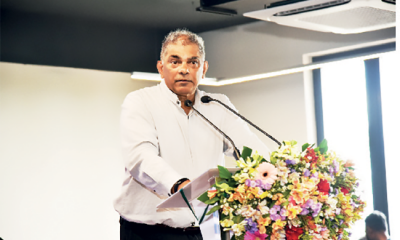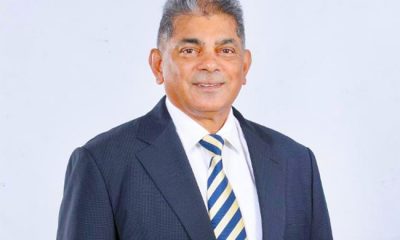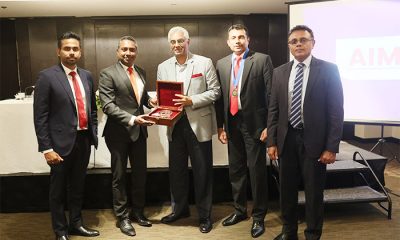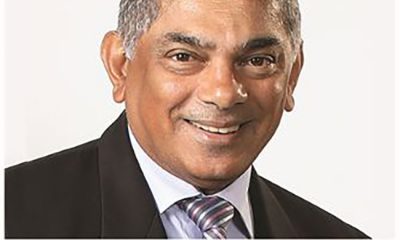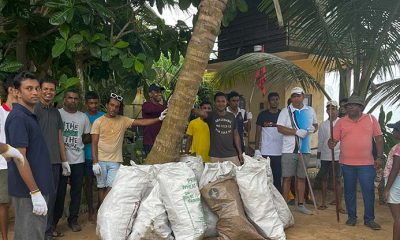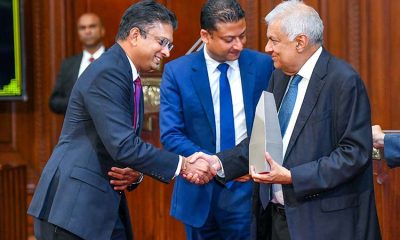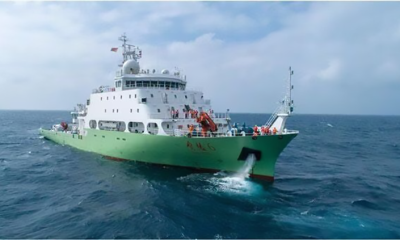News
SLT Group stays resilient for Q3 overcoming external impacts
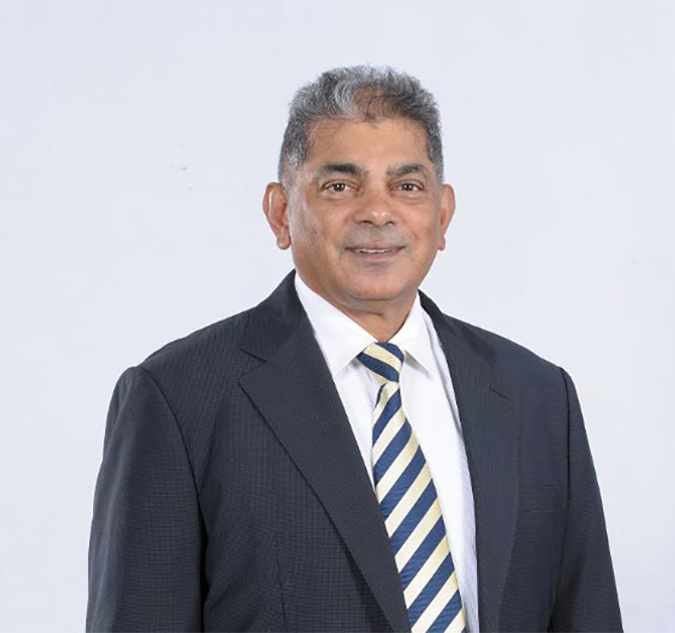
Sri Lanka Telecom Group (SLT Group), the National ICT Solutions Provider,has reported positive overall revenues of Rs 79.6 Bn, a consolidated growth of 3.9% for the first nine months of 2022 compared to the same period last year, driven largely by prudent and proactive measuresundertaken in financial and operational management, said a press release.
It said: Demonstrating resilience in its business model, at Company level, SLT Q3 revenues grewto Rs 16.9Bn, an increase of 7.4% when compared to the same period last year, also reflected in optimistic year-to-dategrowth of10.6% atRs 49.4 Bn. SLT Group’s contribution to the Government of Sri Lanka during the first nine months of 2022 amounted to Rs. 21 Bn. in direct and indirect taxes including levies and dividends.
The Group’s Gross Profit growth for Q3 witnessed a marginal 0.8%increase at Rs 11.1 Bn, in comparison to the previous quarter. Weighing down growth, a negative3.4% in Gross Profit at Rs 33.4 Bn was recorded for the first nine months of the year, compared to the same period last year. Group Profit After Tax(PAT) growth declined to 27.1% (QoQ) while year-to-date also reflected a downward momentum at 34.1%.
At Company level, SLT posted a positive a 9.3% Gross Profit increase of Rs 7.2 Bn for Q3, QoQ and ended the nine months of the year also in a similar trend of 7.1% at Rs. 20.4 Bn.Furthermore, at Company level, Profit Before Tax for the first nine months recorded a significant increase of 136.1% when compared with the same period last year, owing to a forex gain of Rs.5.6 Bn. attributable to USD deposits, Dividend Income of Rs.2.3 Bn. and Rs.1.1 Bn. of Interest Income earned from USD deposits. PAT for the same period saw considerable growth of 82.8% at Rs 9.3 Bn mainly due to forex gains as a result of LKR devaluation, and dividend income received from subsidiaries. PAT growth for the Company in Q3 was a negative 76.6% compared to last quarter (QoQ).
SLT Group Chairman, Rohan Fernando said, “I am pleased to announce yet another quarter of positive, revenue growth for the Group. The resilience in our results is primarily due to management intervention in containing costs, the reduction in energy costs, consolidation of operations moving into company owned premises, and asset monetization subject to government policy being stable to attract FDIs. These results demonstrate how we continue to make tangible progress in delivering steady revenues despite 2022 being one of the most difficult periods in the history of Sri Lanka. The company is cautiously moving into the fourth quarter meeting all obstacles with a positive outlook.”
Company revenue growth was primarily driven by increases in Carrier Domestic, Broadband and Carrier International revenue streams. Carrier Domestic growth was predominantly from expansion in provision of Ethernet, international private leased circuit (IPLC) and internet leased line (ILL) services. Broadband saw revenue growth mainly from FTTH Broadband while Carrier International growth waschiefly due to USD appreciation. However, domestic interconnection revenue dropped as a result of a direction by the Telecommunications Regulatory Commission of Sri Lanka (TRCSL) to reduce charges from April 2022 onwards.
Commenting on the future, the Chairman added, “The vision of the SLT Group of becoming a regional tech conglomerate will be pursued vigorously with the unified brand and consolidation of operations under one roof taking place gradually with the deployment of our state-of-the-art, high-tech, green building by the middle of 2023.”
The mobile services arm of the Group, Mobitel has experienced a revenuedecline in Q3’ 22 against the same period in the previous year, impacted by macro-economic challenges, tax changes and reduction of domestic interconnect charges. Nonetheless, Mobitel sustained growth in international business revenues while productivity and efficiency enhancinginitiatives in all areas also enabledthe subsidiary to remain profitable within the industry.
Meanwhile, SLT Group’s EBITDA (Earnings Before Interest, Tax, Depreciation and Amortization) growth witnessed a marginal reduction of 1.3% in the first nine months of 2022, compared to the same period last year. However, at Company level, EBITDA posted a stronger 5.0% year-on-year growth, mainly attributed to various initiatives including containing costs and asset monetization. Notably, due to inflation operating costs have risen impacting the overall Group EBITDAmargins.
The Group’s operating profit declined by 15.5%, the fall mainly led by devaluation of the LKR and high inflation costs in the first nine months of 2022. Operating expensesof the Group including SLT and Mobitel have increased due to forex devaluation, fuel costs and inflation that has prevailed in the country.Year-on-year electricity cost have decreased due to power outage whereas generator fuel cost has increased significantly due to power outage as well as fuel price increases.As a result of the sharp devaluation of the LKR against the USD during the previous quarter, Q2’22, SLT recorded a Rs.2.3 Bn forex gain. In contrast, the forex gain in Q3’22 was marginal at Rs.0.1 Bn due to the stability of forex movements during the period.
Latest News
Minimum daily wage of plantation workers increased to Rs 1700
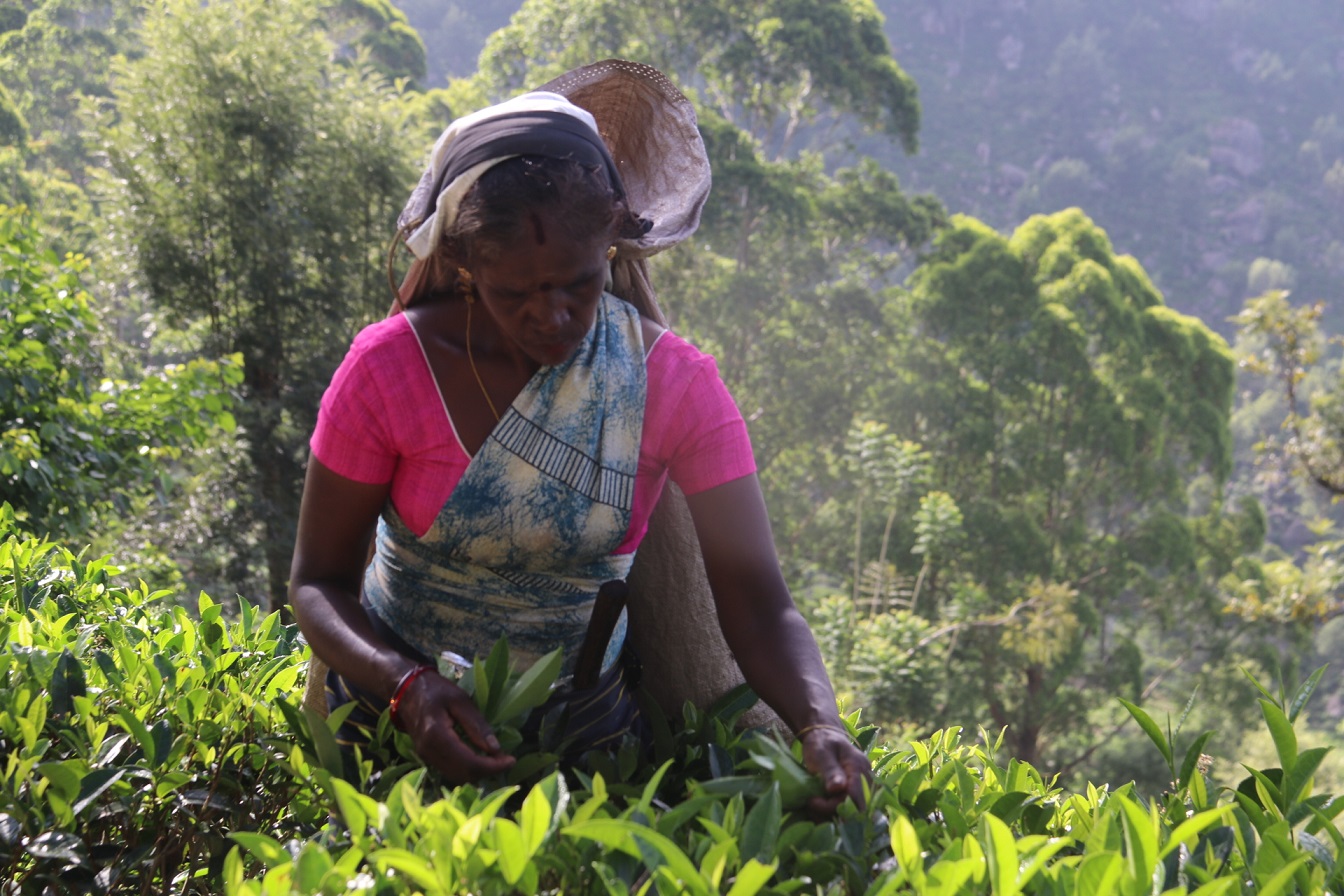
Addressing the Ceylon Workers Congress (CWC) May Day rally in Kotagala this morning (01) President Ranil Wickremesinghe announced that the minimum daily wage of plantation workers has been increased to Rs1700/-
The President said that a gazette extraordinary has been issued in this regard.
News
Prez accused of seeking to gain total control of public finance
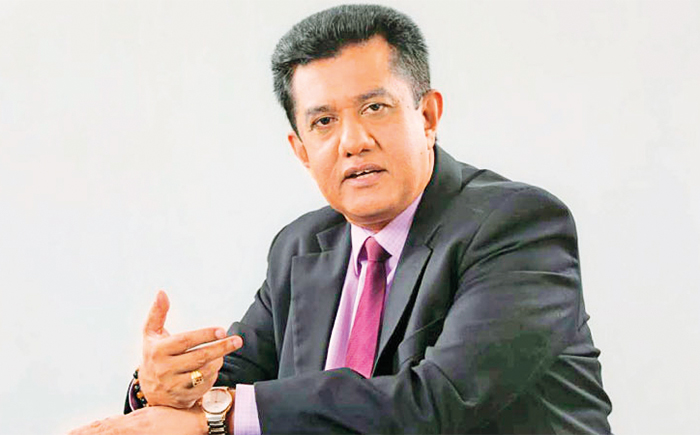
‘Public Debt Management Bill threat to democratic governance’
By Shamindra Ferdinando
Opposition MP Charitha Herath yesterday (30) alleged that the controversial Public Debt Management Bill that had been tabled in Parliament last week was aimed at bringing public sector finance entirely under the Finance Minister.
Claiming that UNP leader and President Ranil Wickremesinghe, in his capacity as the Finance Minister, seemed to be bent on achieving total control over public finance, dissident SLPP MP warned of dire consequences if the ruling party backed what he called an authoritarian move.
Herath dealt with the Public Debt Management Bill at a briefing held at the Nawala office of the Nidahasa Janatha Sabhawa.
Several members of the SLPP dissident group, including Prof. G.L. Peiris and Dr. Nalaka Godahewa, have aligned themselves with the main Opposition Samagi Jana Balawegaya (SJB).
The National List MP said that the proposed Bill would deprive other members of the Cabinet, including the Prime Minister, of powers so far exercised by them pertaining to their ministries and instead subjecting them to the Finance Minister’s control.
Once this Bill received the approval of Parliament, as far as public finance matters are concerned, all other ministries would be irrelevant, MP Herath said.
The issue at hand is that the President happened to be the Finance Minister, MP Herath said. Responding to a query regarding the responsibility of Parliament for public finance raised by The Island, MP Herath said: “In terms of Article 148, all public finances will be under the total control of Parliament. Therefore, the Finance portfolio, being under a person not represented in Parliament, is a matter for serious concern. If public finance is constitutionally under Parliament, the executive shouldn’t, under any circumstances, hold that particular portfolio.”
The Public Debt Management Bill had been formulated in such a way that once Parliament approved it, the Finance portfolio could be held only by a President, the Opposition MP said, asserting that the democratic way of governance was facing an extreme threat.
Asked to explain, MP Herath said that the latest move seemed to be in line with Wickremesinghe’s overall political strategy in the run-up to the presidential election.
MP Herath issued copies of the Bill to the media urging them to vigorously pursue the issue. The SLPPer found fault with political parties and the media for not paying sufficient attention to the developing dictatorial situation.
Referring to the passage of the Central Bank of Sri Lanka Bill on July 20, 2023, MP Herath said that though the UNP had just one National List MP in Parliament Wickremesinghe obviously achieved the unthinkable by craftily exploiting the current situation. The Second Reading of the Bill was passed by a majority of 42 votes, with 66 voting in favour and 24 voting against it.
The Public Debt Management Bill would cause further deterioration of democratic governance, MP Herath alleged, claiming that the President was seeking an apparatus hitherto unavailable to any President to control public finance.
MP Herath claimed that the Wickremesinghe-Rajapaksa government had formulated the Public Debt Management Bill on the basis of the IMF’s recommendations/conditions in the wake of the unprecedented economic crisis that erupted in late 2021. Acknowledging that the country hadn’t been out of the woods yet though the government finalized agreement with the IMF in March 2023 regarding the USD 2.9 bn bailout package, MP Herath said the solution couldn’t be found in an apparatus run by the executive.
Had that happened, there wouldn’t be any meaning to Parliament being constitutionally responsible for public finance, MP Herath said.
The first-time entrant to Parliament said that the UNP leader had no regard for democratic way of governance. The move to break-up the Ceylon Electricity Board (CEB) and privatize various cash cows meant that the UNP leader pursued his same old agenda that had been over and over again rejected by the electorate.
MP Herath urged his colleagues to be mindful of their responsibilities as the President was all out to privatize the remaining public assets.
News
Govt. to ban corporal punishment

The government has decided to prohibit corporal punishment.
Taking to ‘X’, President Ranil Wickremesinghe announced that the Cabinet had approved amendments to the Penal Code and Criminal Procedure Code to prohibit corporal punishment.
Pointing out that UNCRC Article 19 urges protection against all forms of violence towards children, the President has said the Committee on the Rights of the Child, in General Comment No. 8, stresses that corporal punishment must be prohibited in all settings.
President Wickremesinghe has said that the Cabinet approval paves the way for legal protections to ensure that no child in Sri Lanka suffers physical or mental violence.
The President has said the decision to ban corporal punishment was taken in view of the ‘International Day to End Corporal Punishment’, which fell on 30 April.
-

 Business5 days ago
Business5 days agoSri Lanka Resorts of Cinnamon Hotels & Resorts mark Earth Day with impactful eco-initiatives
-

 Business6 days ago
Business6 days agoDialog Axiata recognised as the Most Significant FDI Contributor by BOI
-

 Business6 days ago
Business6 days agoUNESCAP Technical Cooperation Highlights Report flags significant strides in its partnership with Sri Lanka
-

 Business7 days ago
Business7 days agoComBank crowned ‘Best Bank in Sri Lanka’ by Global Finance for 22nd year
-

 Business7 days ago
Business7 days agoCinnamon Lakeside Colombo welcomes Nazoomi Azhar as its new General Manager
-

 News4 days ago
News4 days agoGerman research ship allowed Sri Lanka port call after Chinese-protest led clarification
-

 News4 days ago
News4 days agoSri Lankan Oil and Gas exploration grinds to a standstill amid protracted legal battle
-

 Editorial6 days ago
Editorial6 days agoShocks from Bills




